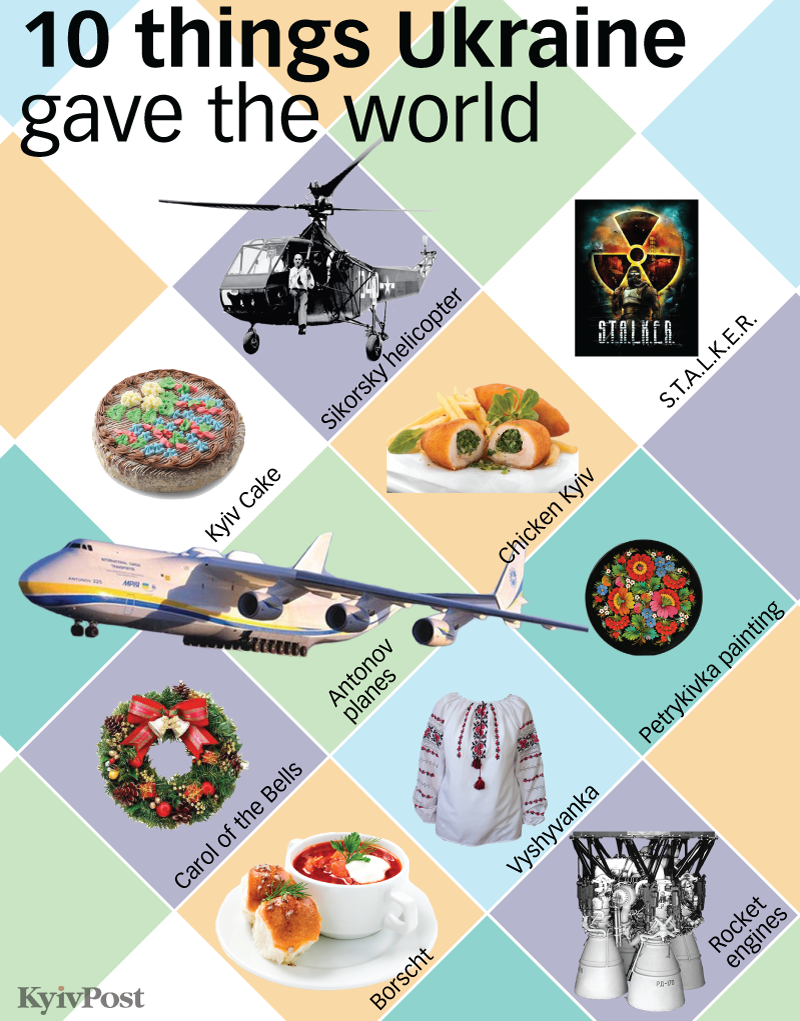A shaky economy and currency mean Ukrainian firms are finding it necessary to generate revenue in non-Russian foreign markets.
But for every Ukrainian company finding success abroad, countless others have yet to make a breakthrough.
That’s especially true among smaller businesses. In most European countries, national agencies help smaller enterprises expand globally. But in Ukraine, a government-backed support network is lacking.
This opens opportunities for private sector consultants.
“Europe is a great market and many Ukrainian firms have succeeded in entering, but nowhere near enough compared to the country’s potential,” according to Dimitry Gilgur, the director at VimesVC, a consultancy which advises Ukrainian companies looking to enter the United Kingdom and
British companies interested in trading in Ukraine.
“When Ukrainian firms enter British markets or European markets, the odds are stacked against them. If they are a small company, they have very little chance,” Gilgur told the Kyiv Post.
Ukraine does have an Export Promotion Office within its Ministry of Economic Development and Trade, but it operates on a small budget. So for any Ukrainian enterprise looking to expand abroad, the options are to go it alone or hire a consultancy firm to help with things like contacts and market research.
VimesVC is happy to provide such services. “We as a company are in a great space, from our perspective. One of the reasons is because there is no government support or any sort of practical support – as far as the UK market it concerned – that would help Ukrainian firms enter,” Gilgur said.
But Gilgur also wants the Ukrainian government to do more to boost domestic brands. State-backed trade and industry expositions, he said, are good places to start.
“From food to construction materials, at every single expo there will be a Chinese presence. There will be Italy, Spain, Portugal. At most of them there will be the Baltic countries. There is never Ukraine, unless we do it as a company for one of our clients,” he said.
Do-it-yourself promotion
Golda Vinogradskaya, a 10-year veteran of the fashion industry own her own clothes line under the Golda Fashion label.
Less than three years ago, she founded Fashion Globus Ukraine, an initiative she describes as a “national partnership.”
It offers Ukrainian designers a platform for getting their products into foreign markets. Her mission, she says, is as much cultural and diplomatic as it is commercial.
“For 10 years I took part in many, many exhibitions,” Vinogradskaya said. “I decided to bring my knowledge and experience to other designers and I established a national partnership in the textiles industry in Ukraine. For the moment there’s about 80 Ukrainian producers and designers involved in this project.”
Vinogradskaya’s forays abroad are only beginning. “If you go to an exhibition and stand there for three days, you might find some buyers, but it’s difficult to do with just one brand,” she said.“That’s why I decided to make this platform. Now, I’m not the owner of just one brand. I am the chief of a national association, and people talk to me differently.”
Expanding horizons
The events of 2014 – the EuroMaidan Revolution that drove Ukrainian President Viktor Yanukovych from power and Russia’s war against Ukraine – has led to a two-thirds drop in the hryvnia’s value.
The silver lining is that foreign firms now find Ukrainian goods and services relatively cheap.
“The exchange rate now is very good for export,” said Kateryna Yantukh, the head of sales at Domen, a Lviv-based business specializing in packaging and labels, which counts Carlsberg, Roshen and Global Spirits among its clients.
Domen is pursuing expansion into Europe, including France and Spain.
“We are like pioneers on these markets. We are taking it very carefully, trying to go step-by-step,” Yantukh told the Kyiv Post. “It wasn’t easy for us, as a Ukrainian company. Selling our printing products and services to new customers who are abroad is a long process.”
For Kateryna Vozianova, meanwhile, expanding her bespoke tailoring outfit Indoposhiv from Kyiv to London wouldn’t have been possible without outside help. Indoposhiv was started by Vozianova in 2009 with loans from family and friends. After two years of operation, it made $3,000, enough to pay back creditors. In 2016, it recorded revenue of $330,000.
Indoposhiv entered the U.K. market in 2014 after being approached by VimesVC, which helped the firm make contacts, meet potential clients and ultimately secure its first orders in the British capital.
“If it had just been me, it would have taken me two years to understand the market and the clients and know how to deal with them,” Vozianova told the Kyiv Post. “Initially when we came to London we didn’t know who our potential clients would be.”
Indoposhiv’s suits are in greater demand and Vozianova is looking for more tailors.
Funding gap
According to Gilgur, a Ukrainian company needs at least $10,635 to enter a foreign market like the U. K. The sum is out of reach for many firms.
“I am genuinely amazed and astonished when I come across a Ukrainian firm successfully operating in foreign markets,” said Gilgur. “There are a few of those and those guys are our clients. I would like to build a small statue to those who have managed to do it.” n

Ukraine gave the world such innovations as the first helicopter and the biggest airplane, rocket engines and other gifts. Also “Carol of the Bells” is originally a Ukrainian Christmas song. Here are some other well-known innovations that were made in Ukraine.
